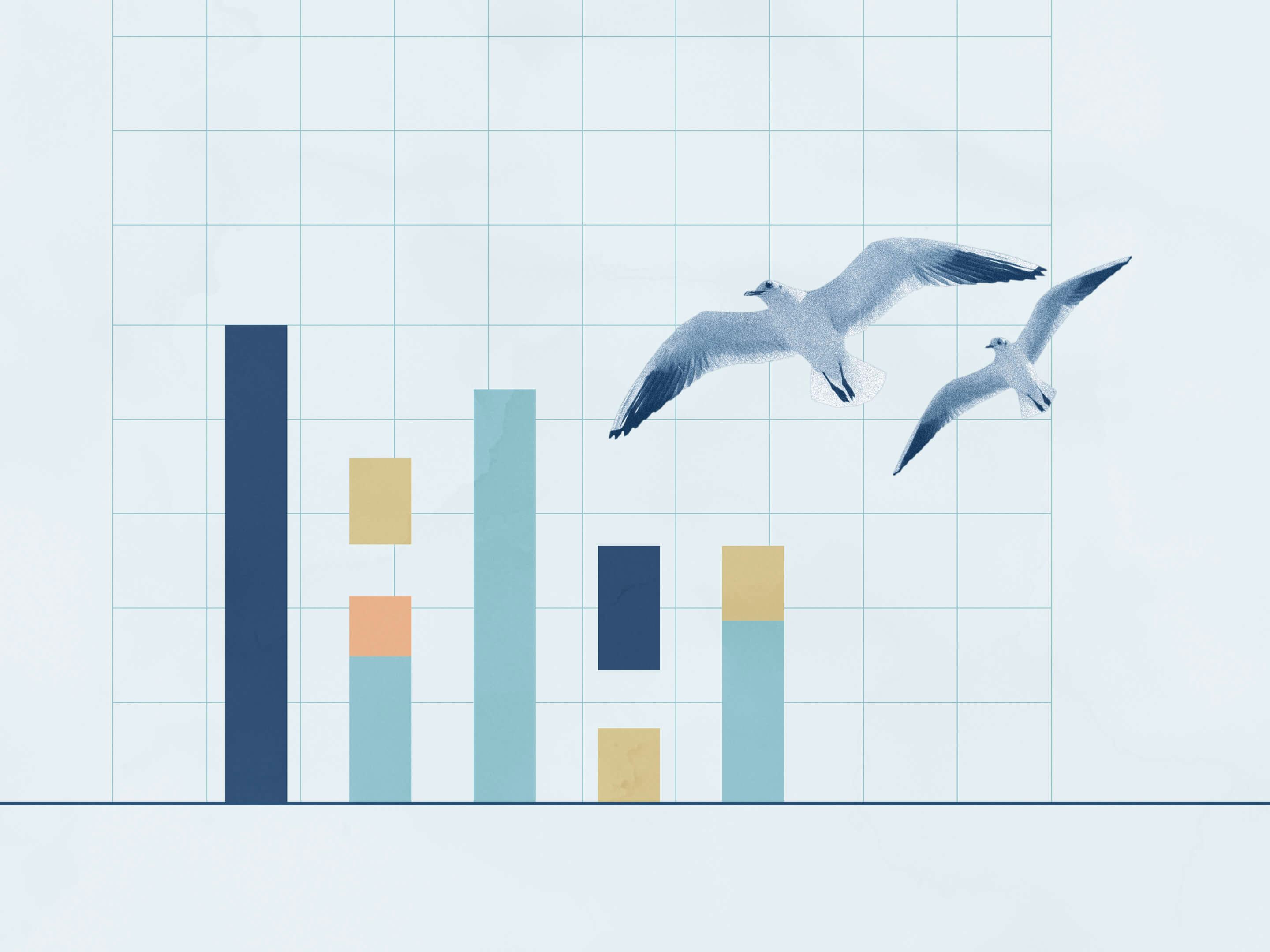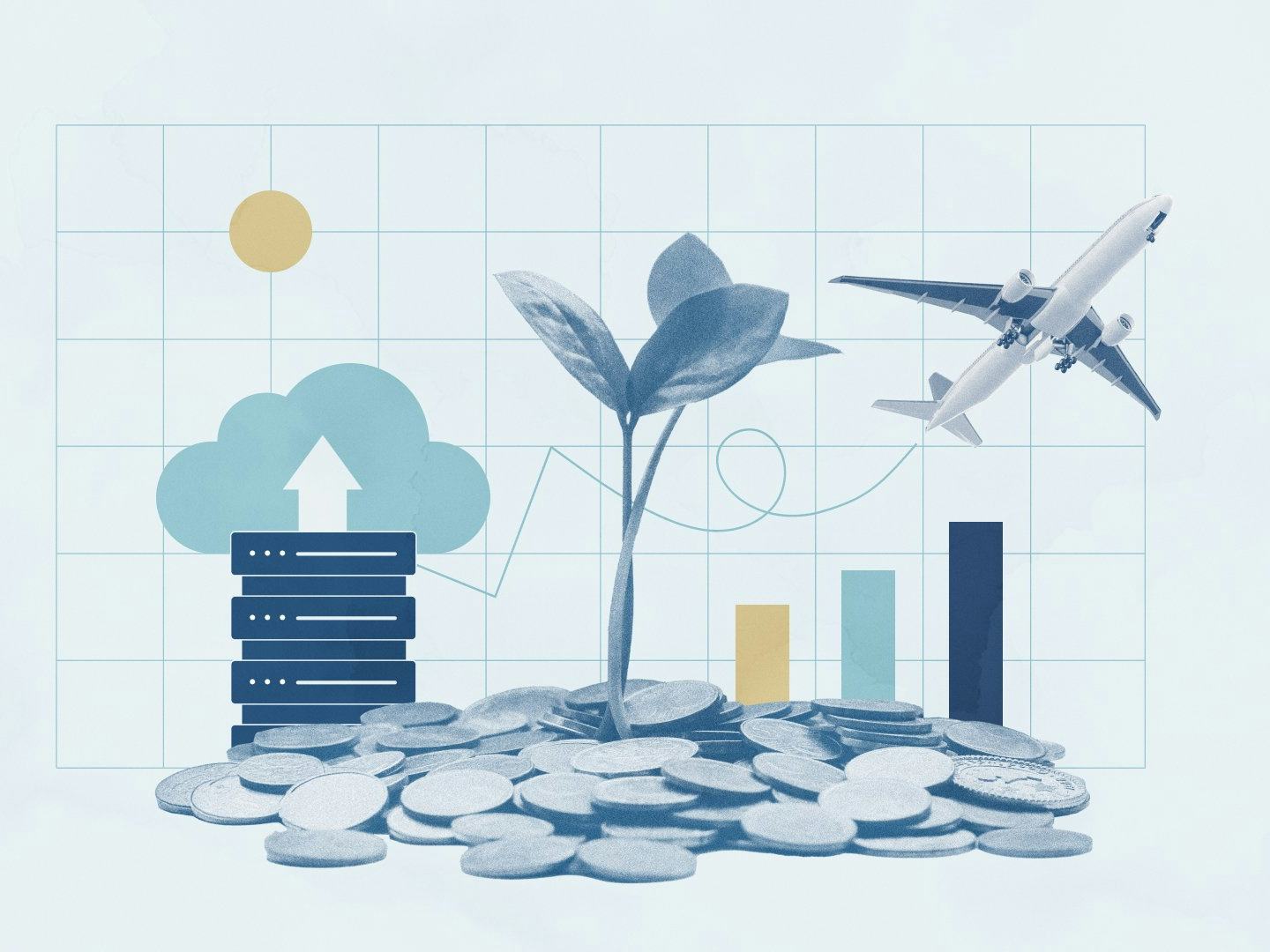Economic forecast for 2023-2026: Economy seeking a balance

Economic growth in Iceland will be 3.1% in 2023 and 2.1% on in 2024, according to our macroeconomic forecast for the period ending in 2026. Tighter monetary restraint has begun to affect various aspects of the economy in recent months. We believe that high interest rate levels will continue to dampen private consumption going forward. The effect is likely to manifest more clearly in business and industry in the coming months, with capital formation increasing only slightly this year and unemployment levels creeping slowly upwards over the next two years.
The economy recovered quickly last year and growth measured 7.2%, driven by a rapidly growing travel sector, private consumption and investment, but also a great surge in population growth. It was apparent that the robust growth witnessed last year was a temporary phenomenon, driven in part by the rapid post-pandemic turnaround.
Demand was quick to pick up once the restrictions of the pandemic were lifted. The travel sector regained its footing in a relatively short time and tension in the labour market called for a significant increase in imported foreign labour. Historically low interest rates in the pandemic alongside low fiscal restraint let domestic demand out of the gates at a gallop. The economy overheated and Iceland was hit with inflation. In addition to being imported, domestic inflation was initially driven by rising prices in the housing market, a trend that began during the pandemic when access to credit was eased considerably. Inflation has since become more general and has proven very resilient.
The policy rate has been bumped up by 8.50 percentage points in just under two and a half years, to 9.25%. Rising interest rates quickly cooled the housing market and the wider economy finally appears to be slowing down too. It appears that the battle with inflation will be rather more painful than we initially assumed, meaning that further reduction in economic activity will be needed to gain control of inflation.
Highlights
- Economic growth will be 3.1% in 2023 and 2.1% in 2024, according to the forecast. It will pick up slowly in the following years, be 2.3% in 2025 and 2.6% in 2026.
- Inflation will recede slowly, still averaging 5.3% in 2024 and 4.3% in 2025. We do not anticipate that inflation will hit the Central Bank’s target during the forecast period.
- Policy rates have peaked for now, so the forecast, yet we won’t see rate cuts until the second quarter of next year. We expect the policy rate to stand at 4.25% at the forecast horizon.
- The outlook is for appreciation of the Icelandic króna (ISK) during the forecast period, with the euro costing ISK 144 at year-end and ISK 138 at the end of 2026.
- We expect private consumption to increase considerably less this year and over the coming years as compared to 2022 or by 2.0% this year and 1.9% next year. Private consumption will then increase slowly alongside lower interest rates and increasing purchasing power.
- Unemployment edges slowly upwards as economic activity declines. We forecast 3.2% unemployment this year, 3.9% next year, 4.4% in 2025 and 4.1% in 2026.
- The purchasing power of wages increases but slightly this year, by 0.6%, and a little more in the coming years, around two percent each year.
- According to our forecast, the housing price index will on average be 5.0% higher this year than in 2022, 2.0% higher in 2024. Activity on the market will slowly pick up again when interest rates start to decline and we expect housing prices to increase by 6.1% in 2025 and 7.4% in 2026.
- Residential housing investment continues to contract, by 5% this year and 3% next year before picking up again in 2025 and moving forward.
- We expect slow growth in business investment, or 3% this year and 3.4% in 2024.
- Export will grow by 6.8% compared to 2022, driven by the increase in tourist visits to Iceland in early 2023, and increases by 4.2% in 2024. Import increases much less this year than in 2022, by 2.8% and 3.5% in 2024.
- We expect tourist visits to Iceland to amount to 2.2 million this year. This number will increase but slightly in the coming years, to 2.3 million in 2024, 2.4 million in 2025 and 2.5 million in 2026.
- We anticipate a slight trade surplus for all years of the forecast period following the deficit of previous years and expect to see an increased surplus from trade in services and increased deficit from trade in goods.
Disclaimer
The content and form of this analysis was produced by employees of Landsbankinn Economic Research (hagfraedideild@landsbankinn.is) and is based on information available to the public when the analysis was compiled. Assessment of this information reflects the views of Economic Research’s employees on the analysis date, which may change without notice.Neither Landsbankinn hf. nor its personnel can be held responsible for transactions based on the information and opinions expressed here as the content is not provided as personal advice on individual transactions.Attention should be drawn to the fact that Landsbankinn hf. may, at any time, have direct or indirect interests at stake either on its own behalf or through its subsidiaries or customers, for instance as an investor, creditor or service provider. Nonetheless, all analyses are prepared independently by Landsbankinn Economic Research and in accordance with the bank’s rules on separation of activities accessible on the Landsbankinn website.








